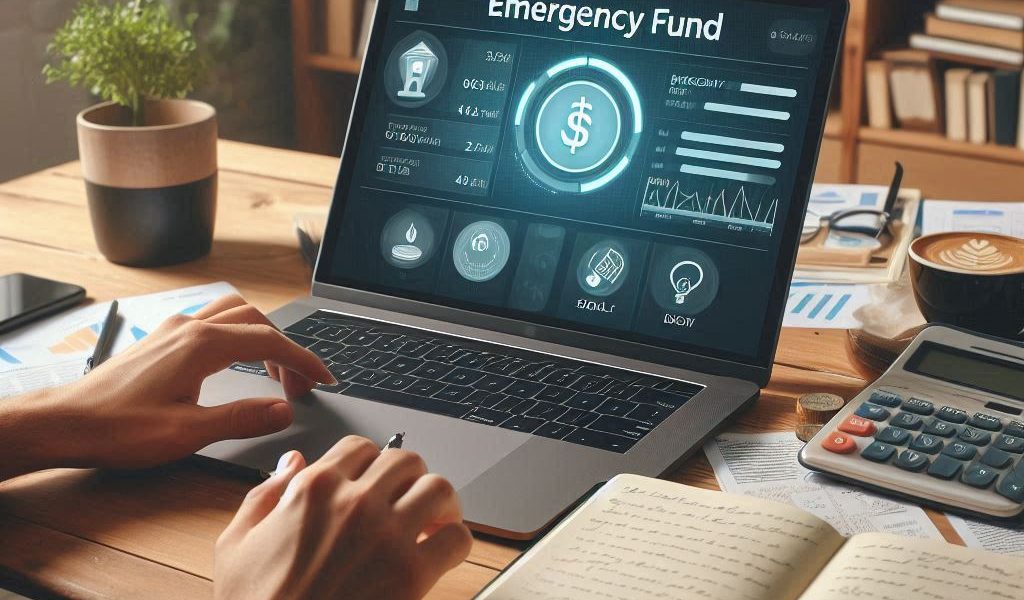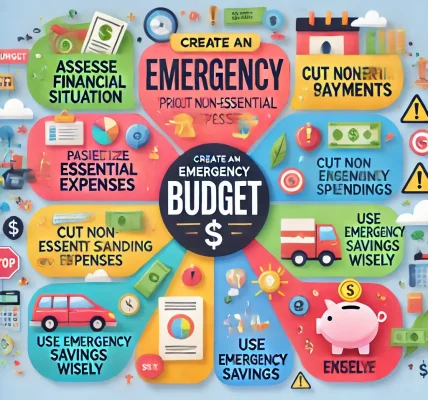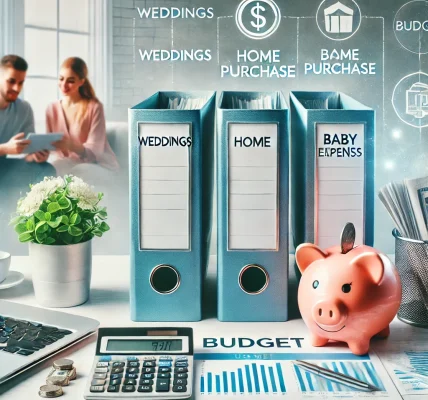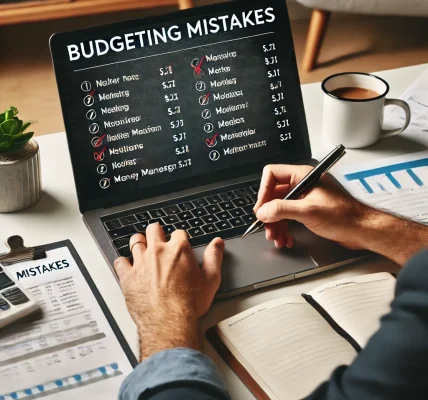Life is unpredictable, and no matter how carefully we plan, unexpected expenses always seem to arise at the most inconvenient times. Whether it’s a car repair, a medical emergency, or an urgent home repair, these unforeseen costs can throw your budget off track and cause unnecessary stress. However, with a solid financial plan and a few proactive strategies, you can handle these unexpected expenses without derailing your financial goals.
In this blog, we’ll explore how to prepare for and manage unexpected expenses while staying within your budget, ensuring that you can maintain financial stability even during challenging times.
Why Unexpected Expenses Happen
Unexpected expenses are a natural part of life, and they can vary in type and severity. Some common examples include:
- Car repairs: Your car might break down unexpectedly, or you may need a new set of tires.
- Medical bills: Emergency medical situations, doctor visits, or prescriptions that weren’t anticipated can lead to high costs.
- Home repairs: Issues like plumbing problems, appliance breakdowns, or roof leaks can create unplanned costs.
- Job loss or income reduction: A sudden loss of income or reduction in hours can lead to financial instability.
- Family emergencies: Unexpected travel or expenses due to a family crisis.
While you can’t predict when or where these expenses will occur, having a strategy in place to manage them is key to keeping your finances intact.
How to Prepare for Unexpected Expenses
The best way to manage unexpected expenses is to prepare for them in advance. Here are some effective strategies to help you plan for the unexpected:
1. Build an Emergency Fund
An emergency fund is a savings account specifically set aside for unexpected expenses. It serves as a financial cushion that can help you cover the cost of emergencies without impacting your regular budget. Financial experts recommend having 3-6 months’ worth of living expenses in your emergency fund.
To build an emergency fund:
- Start small: If saving a large amount seems daunting, begin by saving a small percentage of your monthly income.
- Set up automatic transfers: Automatically transfer a portion of your income into your emergency fund to make saving consistent.
- Avoid dipping into it: Only use this fund for true emergencies, such as medical bills, car repairs, or essential home repairs.
2. Categorize Your Expenses
While budgeting, be sure to create a category for unexpected or variable expenses. This can include things like:
- Car maintenance and repairs
- Medical emergencies or copays
- Home maintenance or urgent repairs
By allocating a portion of your monthly income to these categories, you’ll be better equipped to handle these costs when they arise. This way, you’ll have the money already set aside, minimizing the impact on your regular spending.
How to Handle Unexpected Expenses Without Breaking Your Budget
When an unexpected expense occurs, it can feel like your entire financial plan is at risk. But with a proactive approach, you can manage these expenses while still sticking to your overall budget. Here’s how:
1. Reevaluate Your Budget and Adjust Spending
If an unexpected expense arises and you don’t have the funds immediately available, it’s time to reevaluate your budget. Temporarily adjust your spending in other categories to free up funds for the emergency. Some strategies include:
- Cutting back on discretionary spending: Reduce or delay non-essential purchases like dining out, entertainment, or clothing.
- Reducing savings contributions temporarily: While it’s important to save, you can pause or reduce savings contributions for a month if necessary, as long as it’s a short-term adjustment.
- Delaying non-urgent expenses: Postpone purchases that aren’t time-sensitive to give your budget more breathing room.
2. Use Your Emergency Fund
If you have an emergency fund, this is the time to dip into it. While you should avoid using it for minor expenses, it can be a lifesaver when unexpected costs arise. Here’s how to use it wisely:
- Only for true emergencies: Use the emergency fund for essential expenses, such as medical bills, urgent repairs, or unexpected loss of income.
- Replenish it ASAP: After using your emergency fund, make it a priority to replenish it as soon as possible. This will ensure you’re prepared for future unexpected expenses.
3. Look for Alternative Sources of Income
If your emergency fund is low or you don’t have one, finding temporary ways to increase your income can help you cover unexpected expenses. Consider these options:
- Freelancing or side gigs: If you have a skill set that can be monetized (writing, design, tutoring), look for freelance opportunities or side gigs.
- Selling unused items: Look around your home for items you no longer use, such as electronics, furniture, or clothing, and sell them online or in a garage sale.
- Overtime or additional shifts: If possible, pick up extra hours at work or explore other short-term opportunities to increase your income.
4. Use Credit Wisely
In some cases, using credit to cover an unexpected expense might be the quickest option. However, it’s important to use credit responsibly and avoid falling into debt. Here’s how to use credit wisely:
- Use a 0% interest credit card: If you have a credit card with a 0% introductory interest rate, you may want to use it to cover an emergency expense. Just be sure to pay it off before the interest rate increases.
- Avoid high-interest credit cards: Avoid using high-interest credit cards for emergencies, as this can lead to mounting debt.
5. Negotiate Bills and Payments
If your unexpected expense is significant and you’re struggling to make ends meet, reach out to the relevant companies to negotiate. Some ways to reduce the impact of unexpected costs include:
- Medical bills: Contact your healthcare provider and ask if they can offer a payment plan or discount.
- Car repairs: If you need car repairs, ask for a second opinion or try negotiating the price with the mechanic.
- Utilities or loans: Reach out to creditors to see if you can postpone payments or negotiate a lower interest rate.
Conclusion: Stay Calm and Plan Ahead
Unexpected expenses are a part of life, but they don’t have to derail your entire budget. By planning ahead, building an emergency fund, and knowing how to adjust your budget when needed, you can handle these costs without creating financial chaos.




